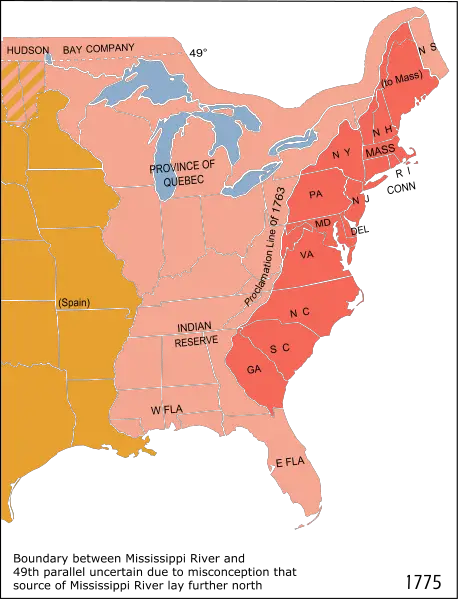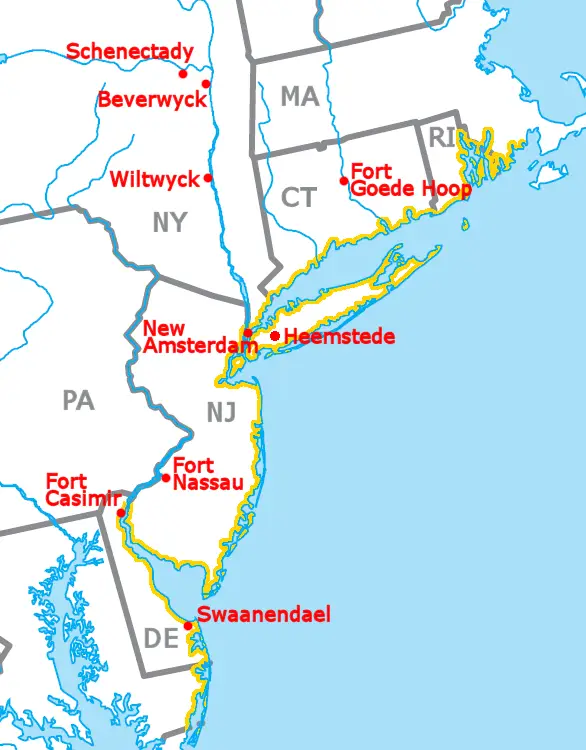Colonies for the King
During the 16th century, countries in Europe began to expand out by exploring at sea for new lands and countries for additional profit. The countries became very competitive, each one looking for land, riches, minerals, and new trade routes. Settlers from England landed in the New World that is now known as America and in the 17th century established various colonies for the British Empire.

A colony is a portion of a country that is under the control of another country. In the New World, England established 13 colonies, each one answered to the laws and governance of Britain.
- Each of the thirteen colonies was founded under individual circumstances, and most were created as people were trying to find religious freedom.
- The first colony that was established by the British was Roanoke in 1587 in Virginia. This was a small group of colonists that tried to create a place to live but due to lack of knowledge of the area and the rough weather, they disappeared.
- The first successful colony that was founded was in 1606 when King James I sent three ships and 144 men to create the settlement of Jamestown. This group was more focused on locating minerals and gold and not enough on how to survive. The Native Indian tribes taught these colonists how to farm, hunt, and fish and by 1616 they were planting tobacco.
- The tobacco crops became such a profitable crop that the first African slaves were sent to the tobacco plantations in 1619.
- It didn’t take long for additional colonies to be established and as each area grew the total colonies under British rule became what we call the thirteen original colonies.
- The colonies were divided into three distinct regions including: New England, Middle Colonies, and Southern Colonies.
- New England Colonies were originally made up of Connecticut, Rhode Island, Massachusetts, and New Hampshire.
- Middle Colonies were originally made up of Delaware, New Jersey, New York, and Pennsylvania. The land between Virginia and New England originally belonged to King Charles II until he gave it to his brother James, the Duke of York. Dutch traders inhabited the area and it was known for good land for crops as well as religious tolerance.
- The Southern Colonies were originally made up of Virginia, Maryland, North Carolina, South Carolina and Georgia. These were the colonies that depended the most on the slaves that were brought over from Africa.
- All of the colonies were under the laws set up by King George III of Britain. Although each of the colonies had their own government, they were required to obey the rule of the King and the British Parliament.
- The British placed high taxes and rules on the colonies that cause a lot of tension and problems. Each new law angered the colonists as they worked so hard only to have their money and profits sent to Britain.
- The British government had spent a lot of money in the French-Indian war that they were involved in from 1754-1763. They had to make up the money somehow and that’s when they started imposing higher taxes on the colonists.
- As the British government clamped down and required more taxes from the colonists, it didn’t take long before the colonists began to complain and it was fertile ground for a revolution.

- Some of the worst taxes that the British imposed were in The Currency Act, the Stamp Act, The Sugar Act, and the Quartering Act.
- The colonists were being required to pay these high taxes without any representation of the colonies in the British government. This resulted in a revolutionary cry of “No taxation Without Representation” and led to the foundation of groups that were seeking freedom from British rule.
- The Sons of Liberty was established in 1765 in Boston, Massachusetts as a way to protest against the British. Their beliefs spread out and eventually included all thirteen of the colonies.
Q&A:
What is a colony?
A portion of a country that is under the control of another country
Why did the British government increase taxes to the colonists after 1763?
To pay for the expense of the French-Indian War
What were the names of the three divisions of the 13 colonies?
New England, Middle, and Southern Colonies
What was the revolutionary rallying cry of the colonists in Boston, Massachusetts?
No taxation without representation
What was the name of the first anti-British revolutionary group?
Sons of Liberty
What are the four British taxation laws that angered the colonists?
The Currency Act, the Stamp Act, The Sugar Act, and the Quartering Act



